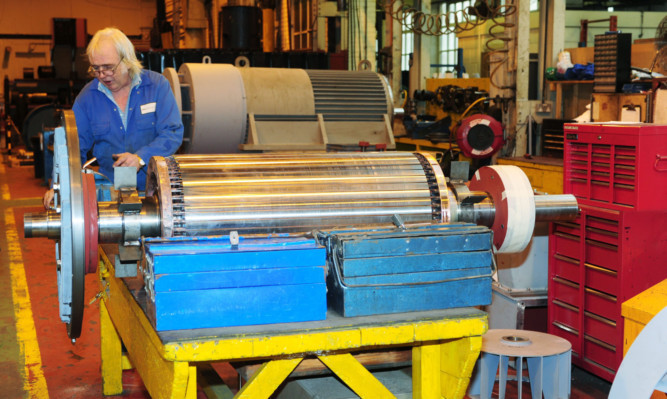The rate of new job creation hit an eight- month high in Scotland last month despite a slowing in private-sector business activity.
The latest monthly data from the Bank of Scotland’s PMI monitor shows the country’s private-sector economy expanded modestly in March, but the rate of growth was the slowest seen since the tail-end of last year.
A slowdown in the rate of growth seen in the powerhouse services sector was one reason for the change, while a marginal drop in overall factory output was a further factor in the fall.
However, the rate at which new jobs were created increased last month to the highest level since July last year.
The upturn albeit modest in its scale came as a result of additional demand for staff from service firms and the manufacturing sector.
The survey found the latest expansion in operating capacity had enabled firms to make further progress in clearing work backlogs, which decreased for the second month running and at a slightly quicker pace than in February.
The study also recorded a further rise in input cost inflation last month, the fastest since December 2011.
The bank said the month-on-month increase in cost burdens being borne by companies was marked, and was a result of higher fuel prices and the weak pound.
Despite those pressure, output prices were virtually unchanged on the month as competition restricted the ability of business to increase the price point for their products and services.
“The PMI for March showed the private sector of the Scottish economy recording a modest expansion,” Bank of Scotland’s chief economist Donald MacRae said.
“The level of new business rose, accompanied by an increase in the number of jobs in both manufacturing and service sectors, but export activity was unchanged in the month.
“Input cost inflation was marked across all sectors.
“The PMI has now been above the no-growth level of 50 for six consecutive months, suggesting the Scottish economy is continuing its slow recovery from recession.”
